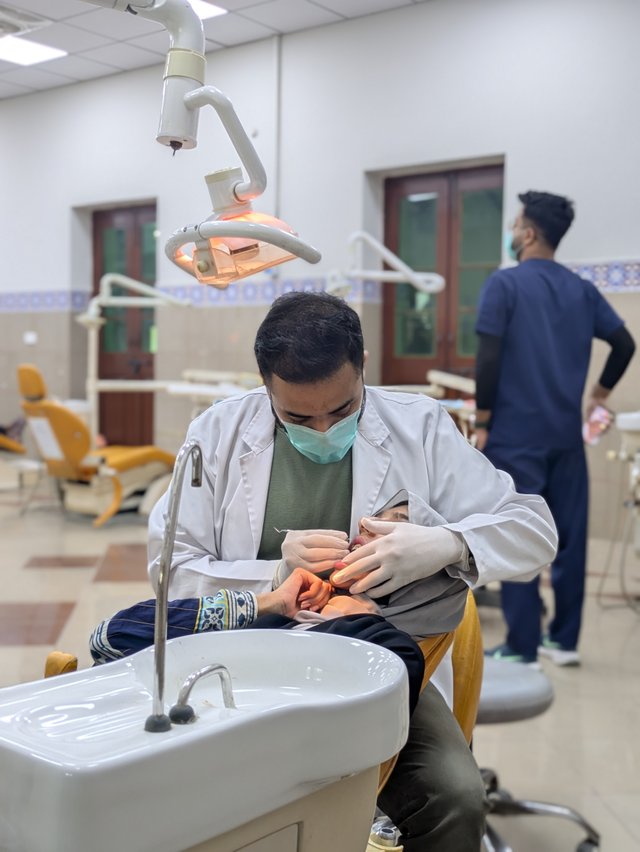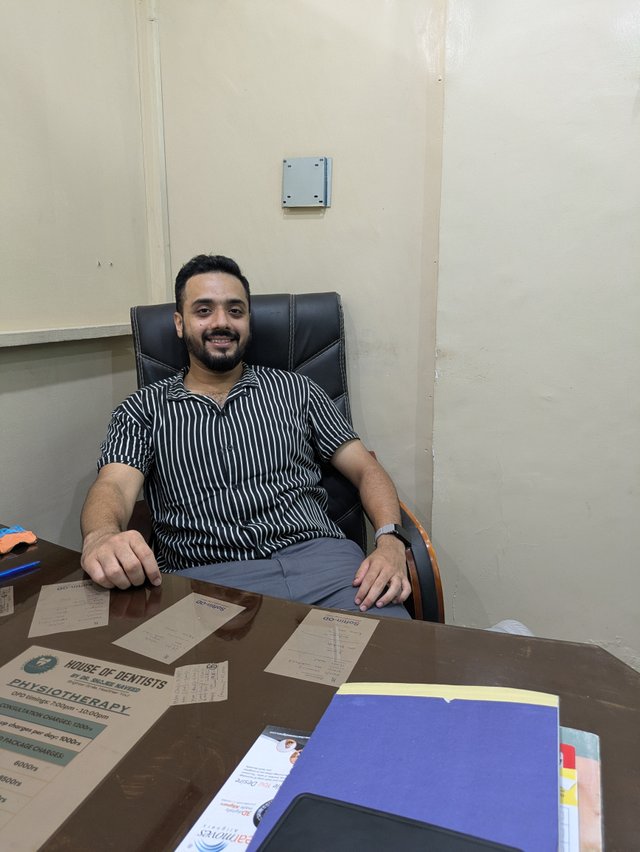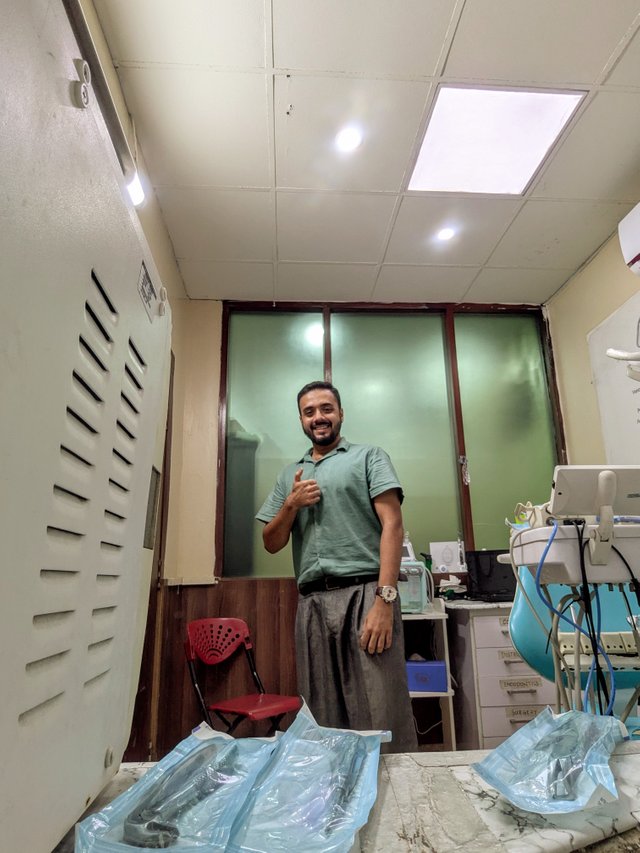The Price of Care: Should We Negotiate in Clinics?
As a young dentist, still early in my career, I’ve been fortunate to work with patients from all walks of life. Every case is a learning experience, both clinically and socially. But one recurring situation that has made me pause and reflect is the common practice of patients negotiating treatment costs in the clinic.
Dental treatment is a professional service. It involves years of education, skill, precision, and responsibility. Yet, many patients approach it as if it is a product to be bargained over, like buying clothes or groceries. This is not only a practical concern but a deeper question about how healthcare is perceived and valued.
For instance, a typical case such as a root canal followed by a crown costs around PKR 20000 which is approximately 70 US dollars. It covers multiple appointments, detailed work inside the tooth, high quality materials, and a restoration that protects the tooth long term. Despite the effort and resources involved, it is rare that a patient agrees to the treatment cost without some form of negotiation. Many try to bring the cost down, ask for discounts, or request to adjust the price.
This kind of discussion can be uncomfortable. While my clinical responsibility is to explain procedures, discuss outcomes, and provide care, I often find myself in conversations about payments. These are conversations that ideally should not involve the treating dentist. My senior mentors have advised me clearly: “You are not selling products. You are providing professional healthcare. Let your assistant handle payments.” And they are right.
In principle, the dentist and patient relationship should focus on trust, communication, and treatment, not bargaining. That is why most clinics designate an assistant or receptionist to manage the financial discussions, ensuring a smooth and professional boundary. However, in practice, many patients still choose to talk directly to the dentist when it comes to pricing, especially if they sense an opportunity to influence the final amount.
There is another layer to this dynamic that I have observed and it is one that deserves thoughtful attention. A pattern has emerged where female patients, more than male patients, tend to negotiate treatment fees. This is not a critique, but an observation worth exploring. It raises questions about how different demographics perceive medical services, financial autonomy, and communication styles within the clinical environment. These nuances cannot be ignored when thinking about how to create better boundaries and understanding between providers and patients.
The issue here is not just about money. It is about mindset. When we allow bargaining in a healthcare setting, we unintentionally reduce the perceived value of the service. The message it sends is that the treatment is flexible or negotiable in quality, when in fact it is not. Dental care, like any form of medical care, involves strict protocols, high standards, and professional ethics. Reducing prices arbitrarily can compromise those standards, either directly or indirectly.
It is also important to consider the long term impact on the profession. If every dentist allows negotiations, especially early in their careers, it sets a precedent that dental services are open to price adjustment. This does not just affect one clinic. It affects the perception of the entire field. The more we normalize bargaining in healthcare, the more we shift from a system based on expertise to one based on customer pressure.
So what should the approach be?
Firstly, there needs to be a clear separation between clinical care and financial discussions. Assistants or front desk staff should handle payments, and dentists should remain focused on treatment. Secondly, educating patients, gently and respectfully, about the value and necessity of dental procedures can shift the conversation away from price and toward long term health benefits. Lastly, dentists should not feel guilty or unprofessional for upholding their treatment costs. Fair pricing is not arrogance. It is clarity.
At the end of the day, we all want patients to receive the care they need. But the value of that care must also be respected. As we grow into our roles as healthcare providers, perhaps the real question we should ask is not “Can you lower the price?” but rather “Can we raise the understanding?”



This is a difficult topic - and doesn't just concern medical services, I think. Even craftsmen do not want to and should not sell themselves short and be fairly remunerated for their work and services. Unfortunately, this means that some services are not affordable for some people. Not because they are stingy (of course there are some). But because they simply can't afford the necessary money.
Should you be able to see their poverty in their sad smiles? From the mouldy garden gate? By their torn clothes?
In our societies, no matter where in the world, it would no longer be necessary for not everyone to be able to take advantage of every necessary and appropriate service. But it is. And it will remain so as long as money is the unit of measurement in which everything is weighed up.
In the specific example you gave - root canal treatment with subsequent crowning - it would currently be around EUR 2,300 (approx. STEEM 17,250) that a patient would have to pay. Very few people can afford that out of pocket... Not everyone can get a loan and a common alternative is to seek treatment abroad, which is much cheaper. Turkey, the Czech Republic, Hungary, Bulgaria... These are the destinations where German patients like to go.
Not the solution either, is it?
I definitely see where you’re coming from, and to some extent, I agree with your point. It’s true that financial situations vary greatly, and not everyone can afford dental treatments easily. As healthcare providers, we should absolutely be mindful of that and try to accommodate patients where we can. Compassion and flexibility are important, especially in a country like Pakistan where economic disparities are so pronounced.
That said, if I think about it as a clinician, and even as someone who’s been on the asking end of discounts. There’s another side to this. No matter how low you set the price, there will always be people who ask for further concessions. Even if services were free, some might still expect additional perks or exceptions. It’s just human nature, and while it’s understandable, it’s also something we have to factor in when discussing pricing.
Another thing to consider is the actual cost of dental treatments here. The materials, equipment, and expertise involved aren’t cheap, and clinics have to sustain themselves too. If prices are slashed too much, it becomes hard to maintain quality or even keep the practice running. It’s a tough balance. We want to help as many people as possible, but we also can’t undervalue the work that goes into these procedures.
And I'm not even talking about lab fees. Alot of money goes to the lab for all the prosthetic treatments such as caps etc.
I’m not calling anyone out, by the way. That’s why I wanted others to share their perspectives too, maybe there’s a middle ground we’re missing. One possible solution could be insurance covering dental care, but let’s be honest, in Pakistan, insurance isn’t common for most people. Even when it’s available, dental coverage is often limited or nonexistent.
At the end of the day, it’s a complex issue with no perfect answer. All we can do is try to be fair, transparent, and empathetic while also being realistic about the challenges on both sides. Would love to hear more thoughts on how we can make things work better for everyone.
Your content has been successfully curated by our team via @kouba01.
Thank you for your valuable efforts! Keep posting high-quality content for a chance to receive more support from our curation team.
Your content has been successfully curated by our team via @kouba01.
Thank you for your valuable efforts! Keep posting high-quality content for a chance to receive more support from our curation team.
Thank you @kouba01
I’d like to invite you to try my game on Steem:
https://memory-game.steemhub.tech/
I hope you enjoy it and have fun.
Every week, I launch a contest with a different theme. You can check out this week’s challenge here:
Week 5 – Steem Memory Game Contest
You can also see more of my projects on Steem:
https://steemhub.tech/
If you like my work, please support me by voting for my witness:
kafio.witHow to vote for my witness:
Thank you very much for your support!